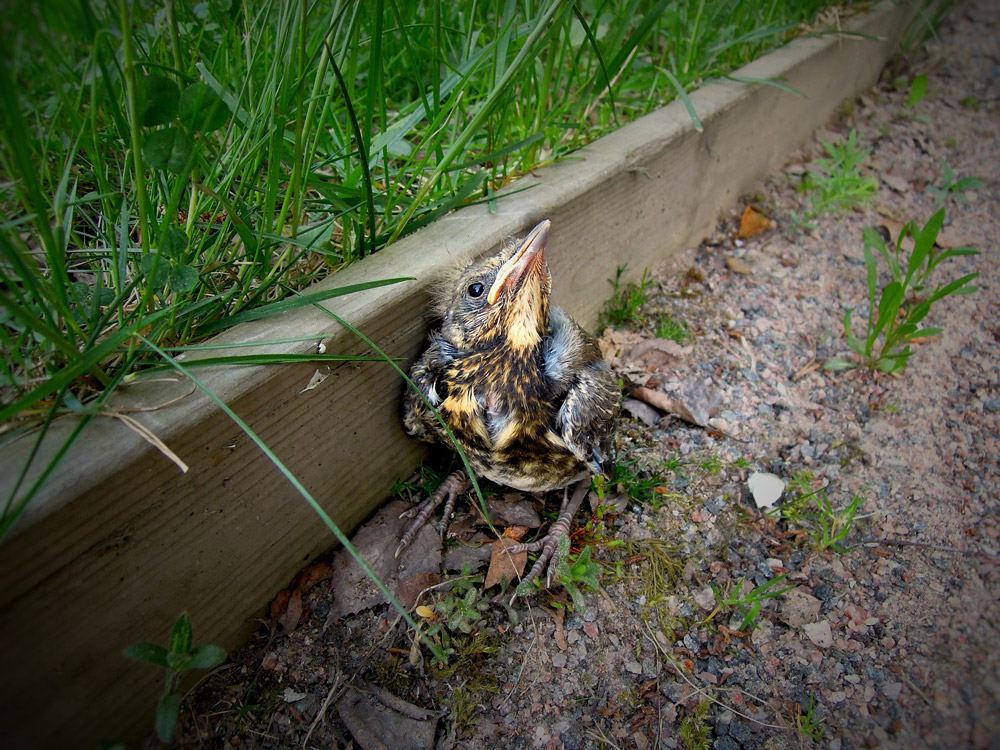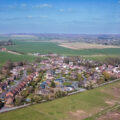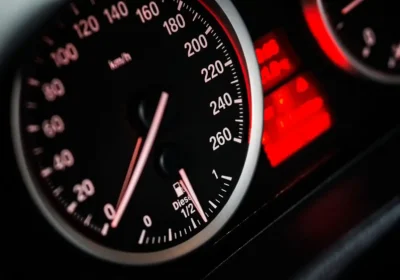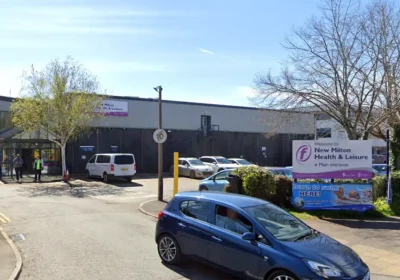It is quite common at this time of year to find baby birds on the ground.
Some will have fallen from their nests in trees and bushes, some will have found their way there by other means.
While it is tempting to rush in and pick the bird up, there are a number of do’s and don’ts you need to be aware of, to ensure the bird has the best chance of survival.
Above all else, remember two things: birds make better parents of baby birds than you ever will, and keep your pets away from any bird you find on the ground.
Warning: Bird flu
You may have seen the warnings about the current bird flu outbreak in the UK.
An Influenza Prevention Zone (AIPZ) is currently in place, which means some wild baby birds should not be handled.
Common garden birds, passerines (or perching birds), have been assessed by Defra and the Animal Plant and Health Agency as presenting very low risk in terms of harbouring bird flu and therefore of passing it on.
Contact with non-common garden birds, such as wildfowl (such as ducks, geese and swans) and poultry should be avoided.
Any contact with birds should be followed by hygiene routines, such as washing hands thoroughly, to prevent contamination with infectious organisms
RSPCA bird handling advice
This advice comes from the RSPCA, based on the stage of a baby bird’s development.
Nestlings
If a baby bird has no feathers or only has a few, it is referred to as a nestling. They will not survive long without the protection of a nest.
If possible, a nestling should be re-nested and left in the wild. If you cannot see a nest or you are not sure which of several nests the nestling came from, then you can make a replacement nest.
This could be a basket or plant pot, stuffed with nesting materials that can be securely attached to a tree. If the nestling is injured, contact your local vet or wildlife rescue centre.
Fledglings
If the baby bird has feathers it is known as a fledgling. These will often leave the nest before they can fly and so it is not uncommon to see them on the ground.
It is best to keep a watching brief on a grounded fledgling, as its parents may be nearby and still be feeding it.
If you think it might be in immediate danger, you can pick it up and put it in a sheltered spot nearby. But somewhere where the parents will still be able to find it easily enough. Always use gloves for hygiene reasons.
Has the bird been orphaned?
You should only move a baby bird as a last resort, for example if they are obviously sick or injured, they are in immediate danger or you know for a fact that its parents are dead.
If this isn’t obvious, then monitor the bird from a safe distance and the parents do not return within two hours, you can assume the bird is an orphan.
Always contact your local vet or wildlife rehabilitation centre if you are unsure or need advice.
Has it been injured?
The RSPCA suggests the following signs to identify an injured baby bird:
● You can see obvious wounds or bleeding
● If a bird has been caught by a dog or cat, there’s a risk it could develop an infection. So, they always need to be taken for treatment, even if you can’t see any obvious wounds
● The bird doesn’t move when you approach them – it’s normal for healthy adult birds to rest on the ground, but they should still try to walk or fly away if someone approaches them
● The bird’s feathers look fluffed up, but remember they will also do this during cold weather to keep warm
● The bird can’t hold their head up straight or keep their balance properly, or their head and neck looks twisted
● There’s swellings or crusty growths on the skin, usually seen on the face, legs or feet
● The bird is panting or breathing fast, and you’ve seen them doing this for at least two hours. Panting is a normal way for birds to cool down if they’re too hot, but it can also be a sign of disease.
Leave nests and eggs alone
Bird eggs are legally protected, so it is against the law to remove them from the nest.
You should also avoid touching or moving them. The nesting period is when birds are at their most vulnerable so you should avoid any contact with them.
You can find more advice from the RSPCA here
https://www.rspca.org.uk/adviceandwelfare/diseases#babybirds










Leave a Reply